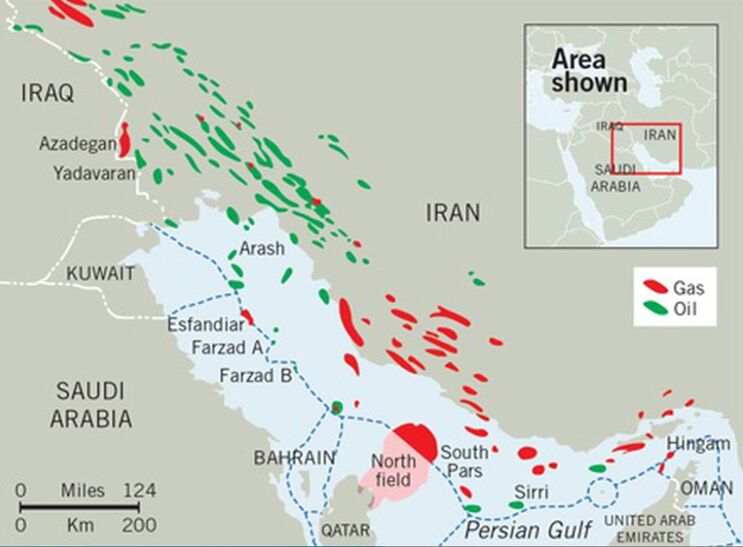In-situ gas and oil reserves of the field are one trillion cubic feet and 42 million barrels respectively. The proven reserves of the gas field are estimated at around 20 trillion cubic feet and the production is planned to be around 1.5 billion cubic feet/day.
The gas field is called Arash by Iranians and al-Dorra by both Kuwait and Saudi Arabia. For tens of years, these three states have had a dispute over the determination of Iran’s share of the reserves.
The maritime oil and gas field is of great importance to Tehran due to its huge amount of gas condensates, Iran’s sovereignty on waters in the southern region as well as borderline dispute, which turned into a controversial issue between Kuwait and the Islamic Republic in last ten year.
According to existing data and international regulations on depth of water and distance to lands, the maritime borderline was established before the victory of the Islamic Revolution in Iran, which is acceptable by the government in Tehran at present time.
The Arash/al-Dorra Gas Field was discovered in 1962 in the Persian Gulf region.
Despite agreements reached between Kuwaiti and Iranian officials on development of the gas field, all construction measures were halted in 2014.
On March 25, 2022, Saudi Energy Minister Abdul Aziz bin Salman and his Kuwaiti counterpart Mohammed Abdul Latif al-Fares signed a document on the development of the field, ignoring Iran’s rights in this respect.
Then, Iran’s Foreign Ministry spokesman Saeed Khatibzadeh reacted to the agreement, warning that the recent move by Kuwait and Saudi Arabia in the framework of a cooperation document is contrary to what was previously discussed, and it is considered illegal.
Iran’s Oil Minister Javad Owji said on March 28 that comprehensive studies on the joint Arash field have been completed and the drilling of wells will begin as soon as the jacket is installed there.
Owji went on to say that any action on the operation and development of this field should be in the coordination of all three countries.
Recent measures taken by Kuwait shows that the Arab country have been under foreign pressure to change its attitude towards the issue in spite of existing accords and documents.
The significant point is that the Islamic Republic is expected to pursue its rights and national interests on the basis of international laws.
The case of Arash/al-Dorra Gas Field can be considered a test to assess friendly slogans and good neighborliness that the southern neighboring states adopt.
1424
Follow us on Twitter @IrnaEnglish



Your Comment